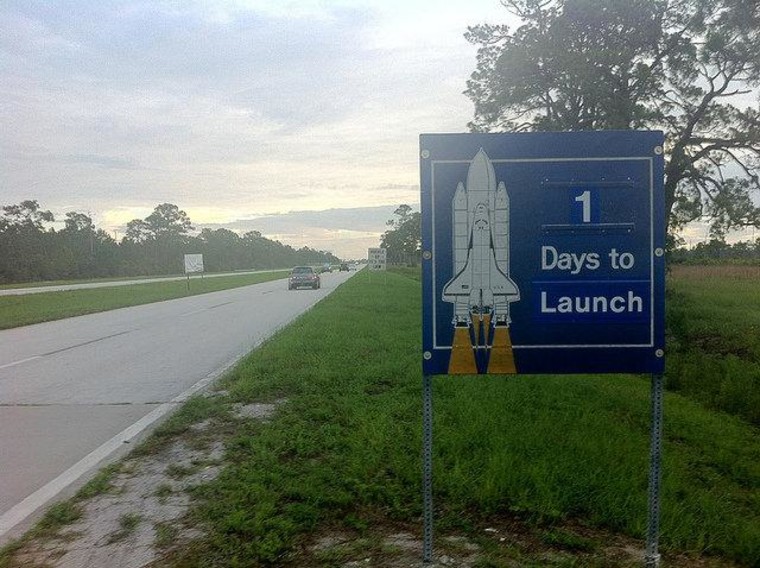In the 1986 movie "SpaceCamp," five campers aboard the Space Shuttle Atlantis are launched into orbit because a kid-friendly droid puts them there (long story as to why). Plot devices such as The Cute, Sentient Robot™ are a staple of 80s dreck like "SpaceCamp," but that doesn't matter in the least when you're an 11-year-old kid watching it, and dreaming of one day going into space.
It's 25 years later, and I'm about to get as close to that dream as I may ever get. This morning, I'm on my way to Kennedy Space Center as the second TRMS producer this year to participate in a NASA Tweetup. And tomorrow (weather permitting), I'll witness the launch of STS-135, the final Space Shuttle mission in its 30-year history.
The Economist marks the occasion with pessimism in its current issue, making Earth's orbit the ceiling for manned space exploration:
It is quite conceivable that 36,000km will prove the limit of human ambition. It is equally conceivable that the fantasy-made-reality of human space flight will return to fantasy. It is likely that the Space Age is over.
Seeing NASA hit with retirements and downsizing, as well as a $240 million cut in this year's budget, one can understand such fatalism. But President Obama is still holding out hope (ahem). At yesterday's Twitter town hall, he was bullish about NASA's future, but with the caveat that "what we need is that next technological breakthrough." New advancements are sure to come, but scientific innovation may not be enough. New York Times science writer Dennis Overbye laments not a lack of human ambition, but of political will:
NASA works for the president, and the president can do only what Congress will give him or her the money for. And Congress answers to the people — that is to say, its campaign contributors.
I wonder what effect those contributors will have, especially since contributors don't even have to be human beings anymore. More from Overbye:
...an astronomer I know who grew up with the same science fiction dreams and expectations as I did once described himself as a member of the “cheated generation.” I no longer expect to see boot prints on Mars during my lifetime, nor do I expect that whoever eventually makes those boot prints will be drawing a paycheck from NASA, or even speaking English.
All that said, the 11-year-old in me is still so geeked that I haven't been able to sleep. I'll have more from #NASATweetup, up to and through the launch. Maybe it'll even be some good news.
